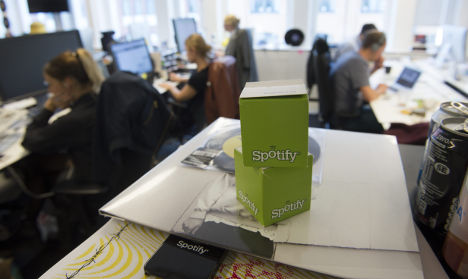.jpg)
Swedes already enjoying the country's generous parental leave. Photo: Martin Svalandar/Image Bank Sweden
The music streaming service has said it will offer all staff up to six months' parental leave on full pay, to ensure international workers don't miss out on a similar benefit already enjoyed in the Swedish capital.

.jpg)